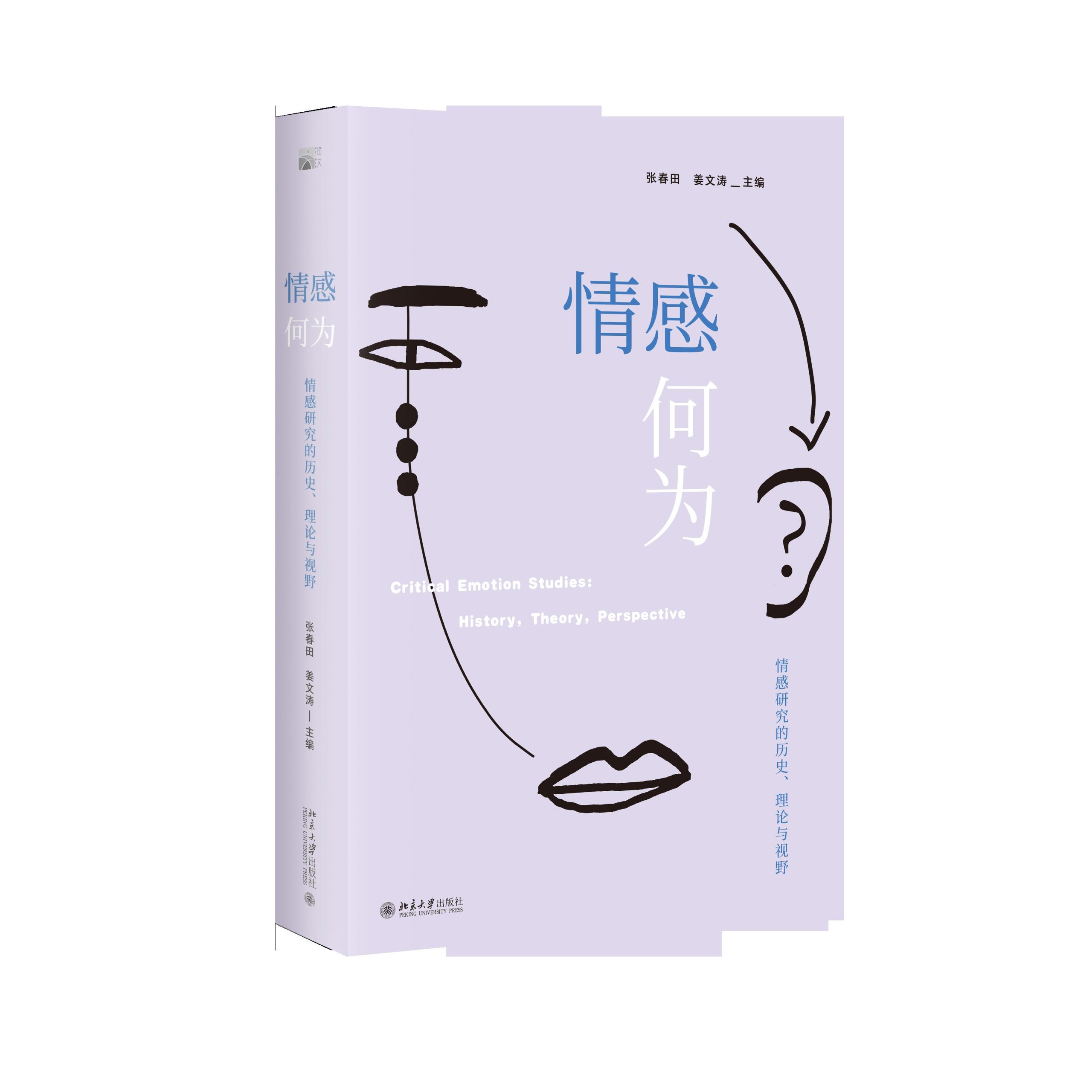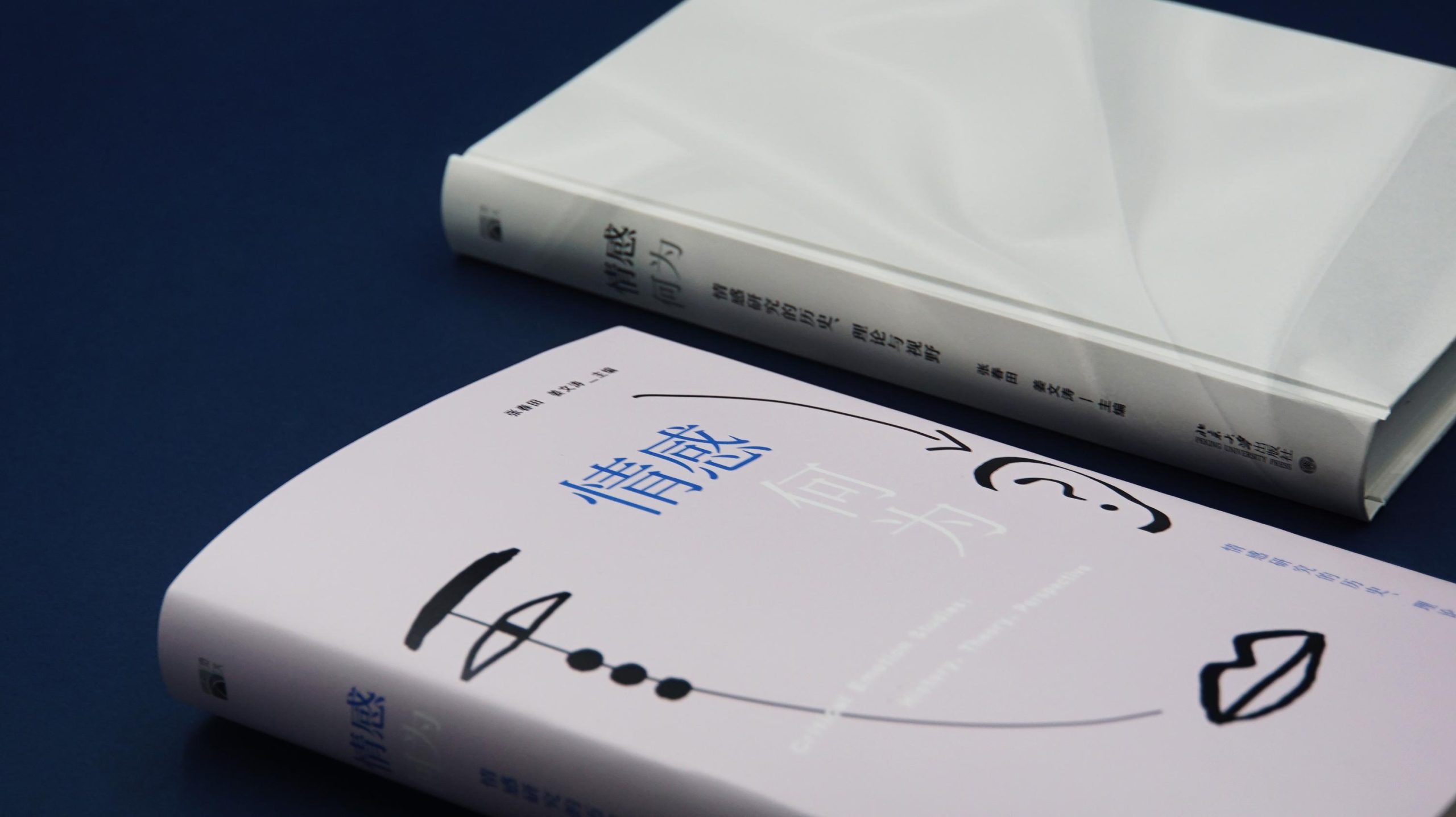
What is Emotion: History, Theory and Vision of Emotional Research
By Zhang Chuntian
Editor Jiang Wentao
Published by Peking University Publishing House
In recent years, the research on emotion has become one of the most important research orientations of human literature. This book not only covers the "emotional turn" and related debates and reflections, but also includes a discussion on the evolution and transformation of emotions in early modern times. This book covers the Chinese and western history and theories of modern emotion, consciousness, sensory perception, writing and reading from the 18th century to the 20th century, and also highlights the relationship between emotion and media, images, movies and contemporary society in the context of post-modernism and media integration. Adhere to the historicization of theory, interdisciplinary orientation and the correlation between humanities and science.
> > selected reading of the text
I’m not worried about emotional expression itself: people in the past, like now, expressed joy, sadness, anger, fear and many other feelings. These emotions (just like today) had many meanings at that time, they had an impact on others, and they would be manipulated by others in turn (just as we will do now). Medieval researchers-in fact, all historians who want to describe history correctly-have to worry about how historians treat emotions in history.
Simply put, the grand narrative is like this: the history of the West is the history of increasingly restrained emotions. The Greek and Roman periods were ignored: didn’t Homer praise the sweetness of anger? There was a childlike emotional life in the Middle Ages: pure, intense and open, and modernity (with various definitions) brought self-discipline, control and suppression.
Max Weber believes that modernism and the state bring bureaucracy, which in turn promotes the development of "rational matter-of-fact" and the personality type of experts ". Calvinists emphasize the evidence of elections, which leads to a kind of "systematic self-control", which is the religious basis of modern capitalist spirit. According to Freud, "civilization" is indeed synonymous with modern European civilization. Telephone, airplane, park and obsession with cleanliness, these symbols of civilization are all "based on giving up hedonic instinct". In the mythical "past", there is more freedom. The "past" here is not necessarily medieval, but it is certainly not modern. Foucault’s works on ancient sexology destroyed the myth of hedonism in the Greek period, and even in his view, these regulations, which emerged in large numbers after the Middle Ages, were destined to urge, examine, analyze and control human body and sex.
Historians who study emotional families generally believe that in the Middle Ages and early modern times, families were cold and loveless. It was not until the 18th century that loving families appeared. The concept of a family without feelings is not in contradiction with the view of excessive emotions in the Middle Ages, because love in an emotional family should be peaceful, restrained and firm. From this point of view, the pre-modern family is at best a social institution for breeding, and at worst it is a theater where violence breaks out. In contrast, modern families are affectionate.
This is the hydraulic principle of emotion: emotion is like liquid all over the human body, fluctuating, bubbling and eager to be released.
Readers are easy to be regarded as vampires, and authors are not satisfied: not only because everyone they meet is a potential prey, they can be absorbed and used in the next novel; It is also because they are committed to living through the descendants of books (not through the living descendants), which may mean that they have never lived completely in a sense.
In any case, it is in this twilight world that readers and authors meet.
Ellison even asserted that "novels can be shaped as a raft of hope"-it "may keep us afloat, let us try our best to pass through obstacles and eddies, and they mark our nation’s hesitant road to or away from democratic ideals."
The most likely thing that will happen between you and a text is that it will save your life, and it will become a part of what makes you live and what you live for.
This is the case with books, which are like and unlike the process of interacting with another person. It feels in a sense like you don’t know what’s next. The text seems to have some independent initiative. Reading is different from sitting around thinking or weaving fantasy stories by yourself.
Readers can even be sadly passive: as a reader, all I can do is browse the text, and I can’t change anything-I can’t impose behavior on it. On the other hand, the text seems to have little ability to act. It can’t respond to me, nor can it look back at me.
But the text can do something even related to survival: it holds me.

Author: Zhang Chuntian
Editor: Jin Jiuchao